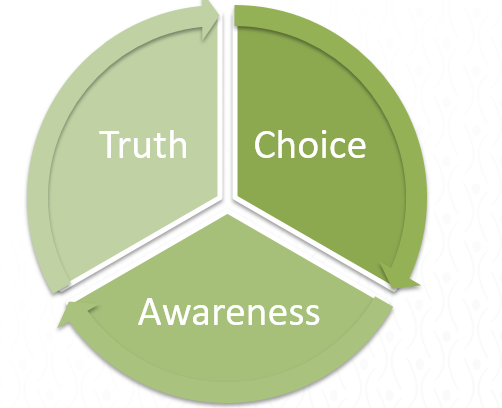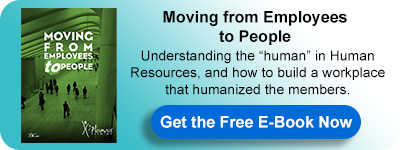The Employee: Seeing the Human Within
There have been numerous calls for managers and employers to humanize the organization. To start viewing employees at work as humans. It might be the right time as well to start asking employees to do the same. To start viewing themselves as humans, acknowledge their different parts, needs, and fears.
The Employee: Seeing the Human within1
THE-The Human Element is a systematic and scientific approach for improving how people work together, leading to the more outstanding accomplishment of goals and better individual, team, and organizational performance. Hence, THE offers a practical approach that allows you to look deep into yourself and express it authentically.

Everything Starts with Awareness
“The Easiest Person to Deceive is One’s own self”
- Edward George Bulwer-Lytton
Awareness is about knowing oneself, understanding who we are. It runs deep into knowing our strengths, our weaknesses, what we value, our beliefs, and our fears. To dig deep into ourselves, we need to be armed with courage. Without courage, we might shut our eyes not to see what we might not like. When it comes to self-awareness, we acknowledge our fears. What triggers us. What makes us tick. We also acknowledge those fears and their triggers. My self-awareness is the aspect of my experience that I have made known to me. My unaware part, also known as my unconscious, is the part of my experience that I do not choose to be aware of. My unconscious contains both negative and positive elements, such as things I’m afraid of, ashamed of, or feel guilty about, as well as positive qualities I’ve yet to embrace, such as creativity, initiative, honesty, or courage. When I am aware of my experience, I can choose how to act intentionally. When I am not aware of myself, my unconscious mind may exert an impact on me that I am unaware of.
Self-awareness is about accepting your human side. You’re a human being, and you are allowed to have weaknesses and fears. You have faults. You don’t need to be perfect. Therefore, when we experience fear of not being liked or fear of not being competent and start being defensive, we must acknowledge those fears deep down and the real reasons behind them. Maybe I am afraid of voicing my opinion because I am scared, I might sound foolish. Or perhaps I am hesitant to accept other people’s ideas because I am jealous as I did not come up with similar good ones. It’s important to acknowledge those fears and their reasons. We need to see ourselves as humans with all our defenses. Denying those fears will only create barriers within us and among others. We need to know the fear to be able to handle it.
Sticking to the Truth
When it comes to THE, truth refers to authenticity. Sticking to who you truly are. It’s about your deep, authentic self. The status of every cell in the body, memories, thoughts, feelings, beliefs, and experiences are all part of a person’s personal truth.
Some of your experiences that you need to share with others:
- Data/facts – information you know
- Your thoughts
- Your feelings
- Your physical sensations
- Your intuition
- your intentions
- Your concerns
- Desires /requests – what you want or need to happen
Hence, voicing your authenticity is announcing your intentions, values, what matters to you, and fears and concerns.
Making a Choice
People make decisions daily, such as what to say, where to go, and what to do. However, a significant portion of our working life is spent establishing who picked what and who did not, as well as who may and cannot choose. As a result, a lot of time and effort is spent assigning blame for bad decisions and taking credit for good ones. Choice, in The Human Element (THE) context, is used as a practical tool, refocuses our concentration on understanding our choices and making intentional decisions that help us reach our objectives. Therefore, we need to be aware of our choices. Why do we choose those decisions in particular, and what impact do they have on us? After making a choice, we raise our awareness further by reflecting on the results of our choice and understanding what it means to us. For example, if we are overloaded with work, we need to be aware of the reasons. Is the team understaffed? Or is it our inability to say no? hence, we need to choose to either speak up or not? If we speak and get reprimanded, we need to determine whether we chose our words? Our timing? Or is it simply the lack of leadership capacity for our manager? If we decide otherwise not to speak, we need to own up to that choice.
1The Human Element, Part One, Cornerstone Participant Guide, BCon (Business Consultants, Inc
For more about this topic, download our latest book "Moving From Employees to People" for FREE:
